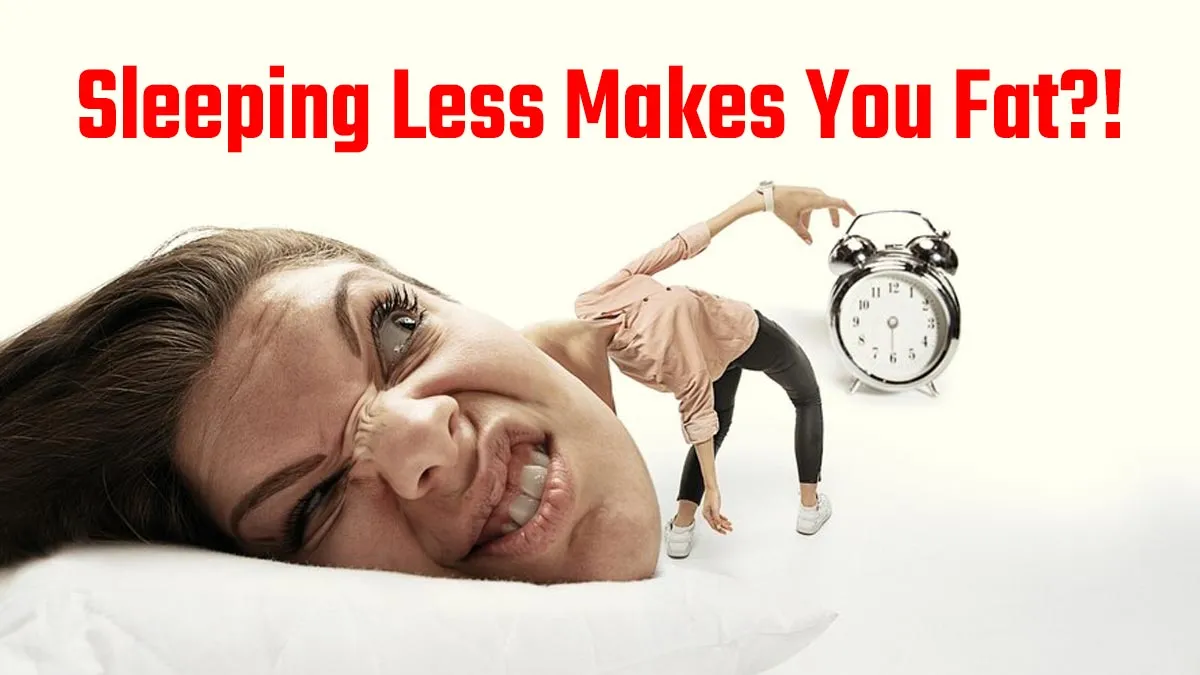
You stay up late scrolling, binge-watching, or working. The next day, you feel tired—but also hungrier than usual. Cravings hit harder, and the scale seems stuck. Coincidence? Maybe not. Science suggests that your sleep habits could be quietly shaping your waistline. Beyond just fatigue, cutting corners on rest might trigger a hormonal domino effect linked to weight gain. But how? An expert unravels the mystery behind sleep, stress hormones, and stubborn fat.
Table of Content:-
Sleep and Weight: What’s the Link?
Sleep isn’t just about feeling refreshed. It’s a critical time for your body to repair, recharge, and balance hormones. According to Deepsikha Jain, Nutritionist, Fries To Fit, Mumbai, when you skimp on sleep, your body enters survival mode. Hunger hormones like ghrelin spike, making you crave sugary or fatty foods. At the same time, leptin (the hormone that signals fullness) drops. This combo can lead to overeating. But there’s another player: cortisol, the stress hormone.
Cortisol: The Stress Hormone That Traps Fat

Cortisol is released by your adrenal glands during stress—including lack of sleep. Normally, cortisol helps regulate energy and metabolism. But when you’re sleep-deprived, cortisol levels stay high for longer. explains: “High cortisol tells your body to store fat, especially around the belly. It also slows your metabolism, making weight loss harder.”
A University of Chicago study tracked 10 healthy adults who slept just 4.5 hours nightly for 4 days. Results showed increased hunger and cravings for carbs. It was also noted that participants had 28% higher cortisol levels in the afternoon and evening. They had fat storage shifted to the abdominal area. Even short-term sleep loss raises cortisol and targets belly fat.
ALSO READ: Joining a Gym? Important Blood Tests to Take Before You Begin
How Cortisol Affects Your Body Fat
- Fat Storage: Cortisol directs fat to your abdomen (visceral fat), linked to heart disease and diabetes.
- Muscle Breakdown: It breaks down muscle for energy, lowering metabolism.
- Cravings: High cortisol drives sugar and salt cravings, leading to overeating.
- Insulin Resistance: Over time, cortisol can make cells ignore insulin, raising blood sugar and fat storage.
Expert Insight On Weight Management
Deepsikha Jain emphasises prioritising sleep for weight management:
- “Sleeping 6–7 hours daily is non-negotiable. Cortisol peaks when you’re sleep-deprived, trapping fat and slowing metabolism.”
- “Fix your sleep first. No diet or workout can outrun high cortisol.”
- Set a Sleep Schedule: Aim for 7–8 hours nightly. Go to bed and wake up at the same time.
- Limit Screens: Blue light from phones disrupts melatonin (sleep hormone). Unplug 1 hour before bed.
- Manage Stress: Try meditation, yoga, or deep breathing to lower cortisol.
- Avoid Late Meals: Eating late spikes insulin, disrupting sleep and fat burning.
Signs Your Cortisol Is Too High
- Fatigue but wired at night.
- Belly fat that won’t budge.
- Constant cravings for junk food.
- Trouble falling or staying asleep.
Conclusion
Sleep isn’t just a luxury, it’s a cornerstone of health and weight management. When you skimp on rest, cortisol levels rise, fat storage increases, and your metabolism slows down. As Deepsikha Jain highlights, “High cortisol is a silent weight-gain trap.” The good news? Small changes, like prioritising 7–8 hours of sleep and managing stress, can reset your hormones and support your weight goals. So, the next time you’re tempted to burn the midnight oil, remember: a good night’s sleep might be the best thing you can do for your body. Start tonight, and let your rest work wonders for your health!
Also watch this video
Read Next
Is There A Right And Wrong Time To Weigh Yourself? Expert Shares The Ideal Time To Check Your Weight
How we keep this article up to date:
We work with experts and keep a close eye on the latest in health and wellness. Whenever there is a new research or helpful information, we update our articles with accurate and useful advice.
Current Version